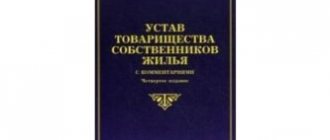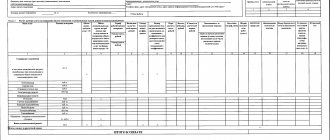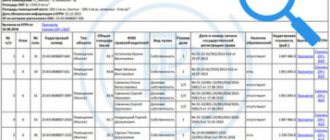Legal status of homeowners' associations (HOAs) and mutual insurance societies (MICs)
According to the legislation of some states, HOAs operate on the basis of a standard charter. Similar norms are contained, for example, in the Law of Ukraine of November 29, 2001 “On associations of co-owners of apartment buildings.” It seems that the presence of a standard charter will significantly simplify and facilitate the process of creating an HOA, in particular, since disputes between owners regarding the content of the charter will be excluded, as well as cases of refusal to register a partnership due to non-compliance of the provisions of the charter with the requirements of the law. By the way, the statutes of the housing partnership were included in the Regulations on Housing Associations and Building Partnerships, approved on December 3, 1921 by the Presidium of the Moscow Soviet.
In Part 3 of Art. 152 of the Housing Code of the Russian Federation states that additional income can be directed to other purposes of the activities of the homeowners’ association, provided for in Chapter. 14 and the charter of the partnership. Thus, other types of activities can only be carried out at the expense of additional income.
Organizational and legal form: homeowners association
Members of a homeowners association are not liable for the obligations of the association. And the partnership is not responsible for the obligations of its members. On the one hand, the obligations of the members of the partnership exist independently of the obligations of the corresponding homeowners association, and the membership relationship does not give rise to the relationship of these obligations. On the other hand, the joint liability of a partnership for the obligations of its members is not only not provided for by law, but is actually excluded by the imperative provision of Part 6 of Art. 135 Housing Code of the Russian Federation. Due to this circumstance, it cannot be established by an agreement between the partnership and its members or enshrined in the charter of such a partnership. In this case, the general rules of Art. 322 of the Civil Code of the Russian Federation that a joint and several obligation may be provided for, in particular, by an agreement, in our opinion, should not be applied, since a special norm of housing legislation applies here.
The legislator established the basic requirement for creating a homeowners' association: the sum of votes belonging to the owners of premises in an apartment building who voted for the creation of a partnership in this building must collectively be more than 50% of the votes belonging to all owners of premises in this building.
Housing and communal services news
Susana Kirakosyan, an expert at RosKvartal, identified five formulations that are dangerous to include in the Charter of a home/real estate owner’s association. This may result in fines and challenges to the Charter in court.
Let's look at them in more detail:
- Inclusion of discriminatory provisions in the Charter and creation of unjustified advantages for HOA members.
- Incorrect distribution of competence between the board and the general meeting of HOA members.
- Delegation to the general meeting of HOA members to resolve issues regarding the use and disposal of common property.
- Determining your own procedure for counting votes at a meeting.
- Technical errors and dangerous abbreviations.
Check your Articles of Incorporation. If it mentions the language listed above, it needs to be amended.
Including discriminatory provisions in the Charter and creating unjustified advantages for HOA members is the first mistake that partnerships make. Example: “Owners of premises who have debts for the maintenance and repair of common property have limited access to parking,” “Any owner who is registered at the place of residence in a residential building of an apartment building can become a member of the HOA.”
The charter should not contain unreasonable advantages and restrictions for the consumer. Unreasonable or discriminatory are those provisions that contradict the fundamentals of law and order and morality.
What may be the consequences of a violation: Administrative liability under Part 2 of Art. 14.8 Code of Administrative Offenses of the Russian Federation. The fine for the chairman of the HOA ranges from 1,000 to 2,000 rubles, for the HOA - from 10,000 to 20,000 rubles.
An owner who has been discriminated against can challenge the provisions of the Charter, demand compensation for moral damage, reimbursement of legal costs and restoration of his rights. The provision of the Charter on exclusion from members of the HOA in the event of activities that violate current legislation or discredit the goals of the partnership is often invalidated by the courts.
This situation is illegal, it creates additional opportunities for terminating a person’s membership in an HOA in the absence of grounds provided for by law (decision of the St. Petersburg City Court dated April 11, 2012 in case No. 33-4777/2012).
When considering a similar case, the court recognized additional grounds for exclusion from HOA membership as legal. The HOA included in the Charter a provision on expulsion from members of the HOA in case of failure to pay mandatory fees and payments for more than 6 months, in case of intentional damage to the common property of the HOA and its members, or violation of the Charter. For other reasons, a member of the HOA can be expelled only by a decision of the general meeting of HOA members and only after a warning.
The owner of a non-residential premises was expelled from the membership of the HOA for numerous violations of the procedure for using common property. The owner tried to challenge this provision of the Charter, but the court refused.
Current legislation does not prohibit the possibility of expelling a person from the membership of an HOA, if such a possibility is provided for by the Charter of the partnership (decision of the Moscow City Court dated April 19, 2018 No. 4g-5181/2018 - click “Download file”).
Incorrect distribution of competence between the board and the general meeting of HOA members is the second dangerous formulation. Example: “The board of the HOA has the right:
— make decisions on payment of remuneration to the chairman of the board;
— on approval of the estimate of income and expenses.”
Do not delegate to the HOA board issues that should be resolved by the general meeting of HOA members (Article 148 of the Housing Code of the Russian Federation). For example, on the liquidation of the HOA, approval of estimates of income and expenses, payment of remuneration to the chairman and members of the HOA board. These issues are within the exclusive competence of the members of the partnership.
The competence of the general meeting of HOA members can be expanded (parts 4–5 of Article 145, part 3 of Article 147 of the Housing Code of the Russian Federation). The Charter may provide for the right of a meeting of HOA members to resolve issues of the HOA board. For example, on the election of a chairman or the involvement of a management organization or other contracting organization for house maintenance (Article 148 of the Housing Code of the Russian Federation).
The consequences of a violation may be as follows:
- challenging decisions made in violation of competence;
2. the risk of a complaint, an unscheduled inspection of the Civil Property Inspection and the issuance of an order.
The court declared illegal the decision of the Rospotrebnadzor Office to bring the HOA to administrative liability. The HOA, when issuing receipts for payment for housing and communal services, included in them a new line “bank commission” based on the decision of the HOA members to pay a commission.
The court noted that the competence of the general meeting of members of the partnership, in addition to the issues specified in the Housing Code of the Russian Federation, may include resolving other issues. Additional competence is prescribed in the charter of the HOA (decision of the Supreme Court of the Russian Federation dated November 20, 2017 No. 302-AD17-16618 in case No. A33-3721/2017). We conclude: the competence of the general meeting of HOA members can be expanded to issues not mentioned in the Housing Code of the Russian Federation.
This was a judicial act in favor of the distribution of competence, but there is also a negative practice when the courts recognize the distribution of competence as illegal. An example is the resolution of the Supreme Court of the Russian Federation dated 06/08/2015 No. 32-AD15-3. The court declared illegal the inclusion of the line “payment for replacement (installation) of electrical energy meters” in the owners’ receipt.
The basis was the decision taken at a meeting of the HOA board members to install individual metering devices. The court noted that the issue of establishing fees for housing and communal services and additional services falls within the exclusive competence of the meeting of HOA members. The board did not have the right to decide this issue.
Conclusion: redistribution of the competence of the general meeting of HOA members is illegal. Such actions can negatively affect the work of the entire partnership.
The third dangerous wording in the Charter of the partnership is the delegation to the general meeting of HOA members to resolve issues regarding the use and disposal of common property. Example: “The general meeting of HOA members makes decisions on the following issues:
— on the transfer of the common property of the apartment complex for rent and the issuance of permission to place outdoor advertising.”
Only the OSS is authorized to make decisions on the use and disposal of the common property of an apartment building: on the placement of advertising structures, telecommunications equipment on the roof and facade of the building, and on the lease of common premises. Previously, the Housing Code of the Russian Federation allowed such issues to be resolved by the general meeting of HOA members (clause 12, part 2, article 145 of the Housing Code of the Russian Federation, as amended on July 23, 2008).
Consequences of violation:
- the nullity of the provisions of the Charter and the decision made at the meeting of HOA members regarding the use and disposal of common property;
- the risk of a complaint, an unscheduled inspection of the State Housing Property Inspection and the issuance of an order.
The exception is cases when OSS MKD gives the chairman or board of the partnership the right to sign agreements on the transfer of common property to third parties. For example, the chairman of the HOA is given the right to conclude an agreement on the rental of common property for the installation of an advertising structure (Clause 3.1, Part 2, Article 44 of the Housing Code of the Russian Federation).
Based on the results of the inspection, GZHI demanded that the partnership eliminate violations in the Charter. The clauses of the Charter contained the right of HOA members to rent out the common property of the house and issue permits for the placement of outdoor advertising. The HOA challenged the GZHI order, but the court rejected the partnership because it recognized such provisions of the Charter as illegal (resolution of the Arbitration Court of the North-Western District dated February 14, 2018 in case No. F07-16557/2017). The homeowners association illegally rented out the premises of the apartment building.
This conclusion was made by the court when considering a case brought by one of the owners of the premises of this house. In the decision, the court indicated that the provision of the HOA Charter on the right of partnership members to dispose of common property contradicts the law (resolution of the Arbitration Court of the North-Western District dated April 21, 2017 in case No. A56-8834/2016).
Determining your own procedure for counting votes at a meeting is the fourth dangerous wording that can be found in the Charters of homeowners' associations. It does not apply to housing and housing-construction cooperatives, where they do not vote by square meters. An example of incorrect wording: “Each member of the partnership at the general meeting has 1 (one) vote.”
The Housing Code of the Russian Federation does not establish the number of votes that each member of the partnership has. But part 1.1 of Art. 146 of the RF Housing Code on the procedure for conducting PSC of a partnership refers to Art. 44–48. In Part 3 of Art. 48 states that the number of votes possessed by each owner of the premises (by analogy, a member of the HOA) is proportional to his share in the right of common ownership of the common property in a given house.
That is 1 sq. m of apartment area is equal to 1 vote of a HOA member. The consequences of a violation may be:
- the risk of a complaint, an unscheduled inspection of the State Housing Property Inspection and the issuance of an order;
- challenging the provisions of the Charter;
- challenging decisions of meetings of HOA members.
The court, following a claim by the owner of a non-residential premises, invalidated the provision of the HOA Charter that each member of the partnership has one vote at the general meeting. This procedure for counting votes contradicts the norms of the Housing Code of the Russian Federation (ruling of the St. Petersburg City Court dated April 11, 2012 in case No. 33-4777/2012).
The charter must be drawn up in accordance with all the rules of legal technology, numbered and bound. It should clearly set out the basic rules of the HOA’s activities and name the governing bodies in their entirety. Abbreviations that entail ambiguity (“meeting”, “general meeting”) are not allowed. Any conflict-minded resident of the house can use such a vague formulation.
An example of dangerous wording: “The general meeting of the partnership is chaired by the chairman of the HOA or his authorized representative.” Such wording is a minor violation. But they will be an additional basis for challenging the provisions of the Charter in court.
The court found the wording of the HOA Charter that “the general meeting of the partnership is chaired by the chairman of the HOA or his authorized representative” as a violation of Part 5 of Art. 146 of the Housing Code of the Russian Federation (resolution of the Arbitration Court of the North-Western District dated February 14, 2018 in case No. F07-16557/2017). Instead of a “trustee,” the Charter should have indicated the deputy chairman or member of the board of the partnership.
Source: RosKvartal® - Internet service No. 1 for management organizations https://roskvartal.ru/tszh-tsn-zhsk/10466/5-opasnyh-formulirovok-v-ustave-tovarischestva-sobstvennikov-zhilya
Legal status of homeowners association
It is also advisable to keep in mind that the homeowners association is not required to agree with the tax authorities on more than just the number of its accounts. But also specific banks or other credit organizations (if we are not talking about foreign banks) in which it intends to open appropriate accounts. This conclusion corresponds to the official position of the Federal Tax Service, which was set out in the letter of the State Tax Service of the Russian Federation dated October 25, 1996 No. VK-6-12/748 “On the rights of taxpayers to open accounts”
The general meeting of owners of premises in an apartment building or persons who will have ownership rights to premises in an apartment building under construction must be held in the manner established by Art. Art. 45 - 48 Housing Code of the Russian Federation. Such a general meeting is valid (has a quorum) if the specified owners or persons with more than 50% of the votes of the total number of votes took part in it. In this case, the number of votes that each owner of premises in an apartment building has at such a general meeting or the person who will have the right of ownership in an apartment building under construction is determined in proportion to the share of each of them in the right of common ownership of common property in this building. The procedure for determining shares in the right of common ownership of common property in an apartment building is established by Art. Art. 37 and 42 of the RF Housing Code.
We recommend reading: Is it possible to delaminate a birth certificate?
Goals and activities. HOMEOWNERS ASSOCIATIONS
CHARTER
HOMEOWNERS ASSOCIATIONS
«_____________________________»
Moscow
2015
General provisions
1.1. The Home Owners Association “________________”, hereinafter referred to as the Partnership, was created in accordance with the provisions of the Civil Code of the Russian Federation, the Housing Code of the Russian Federation, other legislative and regulatory acts, for the joint effective management of common property in an apartment building.
1.2. Full name of the Partnership: Homeowners Association “____________________”. Brief official name of the Partnership: Homeowners' Association "___________________________".
Location (actual address) of the Partnership: Russian Federation, ____.
Legal address of the Partnership: ________.
1.3. The partnership is created without limiting the period of activity.
1.4. The Partnership is a non-profit organization that does not aim to make a profit. The Partnership has the right to carry out business activities in accordance with the Charter. Funds received by the Partnership as a result of economic activities are used to pay general expenses or are sent to special funds spent for the purposes provided for by the decision of the general meeting of members of the Partnership and the Charter of the Partnership.
1.5. The partnership is a legal entity from the moment of state registration, has an independent balance sheet, current and other bank accounts, seals, stamps, forms with its name and other details.
1.6. The number of members of the Partnership who created the Partnership must exceed fifty percent of the votes of the total number of votes of the owners of premises in an apartment building.
1.7. The partnership is liable for its obligations with all its property. The Partnership is not liable for the obligations of its members. Members of the Partnership are not liable for the obligations of the Partnership.
1.8. The Partnership in its activities is guided by federal legislation, the legislation of the city of Moscow, this Charter, and if there are agreements with executive authorities, also by these agreements.
Goals and activities
2.1. The partnership is a voluntary association of owners of residential and non-residential premises in an apartment building, created for the purposes of:
joint management of a complex of real estate in an apartment building, including ensuring the proper technical, fire safety, environmental and sanitary condition of the common property in an apartment building, provision of utilities to owners of residential and non-residential premises, as well as users of residential and non-residential premises in an apartment building;
implementation by owners of residential and non-residential premises of the rights to own, use and, within the limits established by law, dispose of common property in an apartment building.
2.2. The subject of the Partnership’s activities is:
home management;
security of an apartment building, local area and parking lot;
performance of works and services for maintenance and repair, including capital, reconstruction of premises in the house;
concluding agreements with resource supply organizations in order to provide utility services to owners of residential and non-residential premises, as well as users of residential and non-residential premises;
carrying out measures aimed at ensuring that all owners of premises fulfill their obligations for the maintenance and repair of common property in accordance with their shares in the right of common ownership of this property;
carrying out activities for improvement and landscaping of the local area;
carrying out measures aimed at ensuring compliance with the rights and legitimate interests of premises owners when establishing the conditions and procedure for the ownership, use and disposal of common property;
taking measures necessary to prevent or suppress actions of third parties that impede or interfere with the exercise of the rights of ownership, use and, within the limits established by law, of the owners of premises with common property;
receipt and use for the needs of the Partnership, in accordance with the powers granted by the Charter, bank loans and other borrowed funds, in the manner and under the conditions provided for by law;
carrying out any economic activity aimed at meeting the needs of the Partnership that does not contradict the current legislation of the Russian Federation.
representation of the legitimate interests of premises owners in relations with third parties, including state authorities and administration, local government bodies, courts, as well as in relations with other legal entities and individuals;
protection of the rights and interests of members of the Partnership;
assistance in registration and deregistration at the location of the HOA.
2.3. The Partnership may also carry out other types of activities that are not prohibited by law and correspond to the goals of the Partnership.
2.4. Certain types of activities can be carried out by the Partnership only on the basis of special permits (licenses). The list of these types of activities is determined by the legislation of the Russian Federation.
Housing and communal services consulting
5. An agreement to eliminate or limit the liability of persons specified in paragraphs 1 and 2 of this article for committing unfair actions, and in a public company for committing unfair and unreasonable actions (paragraph 3 of Article 53) is void.
1. The decision of the meeting is considered adopted if the majority of the meeting participants voted for it and at least fifty percent of the total number of participants in the relevant civil law community participated in the meeting.
Legal status of homeowners' associations (page
At the same time, taking into account clause 2 of Art. 52 of the Civil Code of the Russian Federation, the charter of a homeowners’ association must necessarily reflect the name of such a non-profit organization, indicating the organizational and legal form, location, procedure for managing activities, as well as the subject and purpose of the activity. At the same time, the charter of the partnership may reflect issues that, in accordance with Section. 6 of the Housing Code of the Russian Federation are resolved by this partnership. For example, issues related to the procedure for convening (Part 1 of Article 145 of the Housing Code), competence (Part 3 of Article 145 of the Housing Code), competence (Part 3 of Article 146 of the Housing Code) of the general meeting of members of the homeowners association, with the voting method at such a meeting (Part 6, Article 146 of the Housing Code), establishing the terms of office of the board of the partnership (Part 2, Article 147) and the chairman of the board of the partnership (Part 1, Article 149 of the Housing Code), the terms for convening meetings of the board of the partnership (Part 6 Article 147 of the Housing Code).
In accordance with this provision, the Housing Code establishes a dispositive rule regarding the period of activity of a homeowners' association. According to this rule, if the period of activity of a homeowners' association is not determined by its Charter, it is considered that such a partnership was created without limiting the period of its activity.
Charter of the homeowners association, requirements for it
The legal basis for the creation of an HOA, as well as the requirements for the statutory documents of a partnership of this kind, are determined by Art. 135 Housing Code of the Russian Federation. The only and main constituent document of the HOA is the charter, which must be adopted at the general meeting of the members of the association by a majority vote of the owners of the property of the apartment building.
In the charter of the HOA, in accordance with Part 2 of Art. 135 of the Housing Code of the Russian Federation, the following information must be reflected:
- name (it must contain words denoting the organizational and legal form of the partnership);
- location of the organization (legal address);
- the goals (main directions of activity) and the subject (methods of achieving them) of the organization’s existence;
- conditions of membership in the partnership, the procedure for joining and leaving the HOA;
- a list of management bodies of the partnership, their competence, as well as the division of powers between them;
- the procedure for making management decisions in the partnership, as well as a list of issues that require a unanimous or qualified majority to resolve;
- methods of exercising control over the activities of the management bodies of the partnership, the number of members and powers of the audit commission (auditor), the procedure for its election and activities.
Registration of the HOA charter
Speaking about the technical design of the charter of the homeowners’ association, it should be remembered that, due to the requirements of Part 3 of Art. 136 Housing Code of the Russian Federation, Art. 2 of the Law “On State...” dated 08.08.2001 No. 129-FZ, clause 1 of the provision approved by the Decree of the Government of the Russian Federation “On Approval...” dated 30.09.2004 No. 506, the tax inspectorate is vested with the authority to register HOAs and their constituent documents. At the same time, the tax authorities have not approved any regulatory act that defines the list of legal and technical requirements for the HOA charter.
You can find more complete information on the topic in ConsultantPlus. Full and free access to the system for 2 days.
Therefore, it is enough to be guided by generally accepted rules of legal practice:
- The charter is drawn up on standard A4 sheets.
- The sheets of the document are numbered, the charter itself is stitched.
- The first sheet of the document is highlighted as the title page; it indicates the details of the decision of the meeting of HOA members, which adopted the charter, the name of the document and the partnership. At the bottom of the sheet, the administrative-territorial unit in which the HOA operates is indicated. Since this is a title page, it is not numbered.
Structuring the text of the charter
To make the text of the document easier to read, practitioners use the following structure:
- the most significant issues that should be reflected in the charter are separated into separate sections (chapters, articles);
- the list of norms that regulate specific sections of the charter, in turn, is grouped into clauses or parts.
For example, the classic first section of most documents is “General Provisions”. Within the framework of this section, separate paragraphs regulate such issues as the name, address of the organization, its status, terms of activity, etc.
For the convenience of placing links to specific structural units of the text, they are usually numbered. In this case, you can use both continuous numbering of clauses for the entire document, and digital designations, where the first digit indicates the number of the corresponding section, and the second - the number of the clause in the section (in the sample HOA charter below, this is exactly the method used).
Sections are also numbered. To designate them, you can use both Roman and Arabic numerals. In this case, the numbering of sections is always continuous.
Organizational and legal form: homeowners association
In accordance with paragraph 6 of Article 50 of the Civil Code of the Russian Federation (hereinafter referred to as the Civil Code of the Russian Federation), the rules apply to relations in the implementation by non-profit organizations of their main activities, as well as to other relations with their participation that are not related to the subject of civil legislation (Article 2 of the Civil Code of the Russian Federation). The Civil Code of the Russian Federation does not apply unless otherwise provided by law or the charter of a non-profit organization. At the same time, in accordance with paragraph 2 of Article 291 of the Civil Code of the Russian Federation, the HOA is a non-profit organization created and operating in accordance with the law on homeowners' associations. Currently, such a law is the Housing Code of the Russian Federation (hereinafter referred to as the Housing Code of the Russian Federation).
We recommend reading: How an Apartment Can Be Confiscated
Considering that a homeowners' association is created as a type of real estate owners' association, an indication in the name of the homeowners' association of the type of its organizational and legal form is currently not required. The name indicates only the type - homeowners' association. In this case, information about the organizational and legal form of the homeowners’ association must be indicated in its charter (clause 4 of Article 52 of the Civil Code of the Russian Federation). This position is reflected in the letter of the Federal Tax Service of Russia dated June 26, 2020 No. SA-2-14/752.
Property Owners Association
determine the estimate of income and expenses for the year, including the necessary expenses for the maintenance and repair of common property, costs for repairs and other work, special contributions and deductions to the reserve fund, as well as expenses for other purposes established by the charter of the partnership;
In accordance with the Civil Code of the Russian Federation, a partnership of real estate owners
A voluntary association of real estate owners is recognized, created by them for joint ownership, use and, within the limits established by law, disposal of property (things) that by force of law is in their common ownership or for common use, as well as to achieve other goals provided for by law.
Lecture 5
A homeowners' association (HOA) is a non-profit organization, an association of owners of premises in an apartment building for joint management of a complex of real estate in an apartment building, ensuring the operation of this complex, ownership, use and, within the limits established by law, disposal of common property in an apartment building.
We recommend reading: What to do if a pensioner paid property taxes
1) several apartment buildings, the premises of which belong to different (at least two) owners of the premises in the apartment building, with land plots located on a common land plot or several neighboring (bordering) land plots, engineering networks and other infrastructure elements ;
Features of the work of a homeowners association (HOA) in 2020
- guaranteeing compliance with the Charter and legislative norms;
- exercising control over the timely payment of payments by the participants of the partnership;
- drawing up cost/income estimates for the current year;
- creating reports on financial and economic activities;
- presenting the report to the general house meeting for review;
- management of apartment buildings or concluding management contracts;
- hiring and firing employees to operate the building (but the employer in labor relations is TSN, not the management body);
- concluding agreements for the maintenance of common property;
- maintaining a list of partnership participants;
- implementation of office work and accounting;
- reporting;
- convening and holding house-wide meetings;
- fulfillment of other duties prescribed in the Charter.
- the name of the partnership has changed;
- in the agreement the association is referred to as a “non-profit corporate organization”;
- entrepreneurship is permitted if it is carried out for the benefit of the owners;
- the presence of a chairman (there may be several chairmen) and a board is mandatory;
- it is possible to form a supervisory board;
- the rights and obligations of TSN members can be changed based on the minutes of the general meeting of owners.
Constituent documents of the HOA
The charter of the homeowners' association is the constituent document of the HOA, which is approved at the general meeting by a majority vote of the total number of votes of the owners of premises in the apartment building. The purpose of the charter of a homeowners' association is to regulate relations related to the management of a residential building and the adjacent territory. At the same time, the charter of the HOA should not contradict either the federal legislation of the Russian Federation or regional legal acts.
The charter of a homeowners association, as a rule, contains general provisions that reflect information about the name of the HOA, its address and other information. Further chapters of the charter set out the goals of creating a homeowners' association, types of activities, rights to non-residential premises, rights and obligations of HOA members, provisions governing the activities of the board, chairman, auditor or audit commission of the HOA, the procedure for holding a general meeting, the procedure for liquidating the homeowners' association and many other provisions governing the activities of the HOA.
- Homeowners association governing bodies
The legislation on homeowners' associations states that the highest governing body in an HOA is the general meeting of HOA members. In the hierarchy, after him comes the board of the HOA, whose members elect the chairman of the board from among themselves. According to Article 145 of the Housing Code of the Russian Federation, the competence of the general meeting of HOA members includes:
— amendments to the charter of the partnership;
— making decisions on the reorganization and liquidation of the partnership;
— election of the board and audit commission (auditor) of the partnership;
— establishing the amount of obligatory payments and contributions of members of the partnership;
— formation of special funds of the partnership, including a reserve fund, a fund for the restoration and repair of common property in an apartment building and its equipment;
making decisions on obtaining borrowed funds, including bank loans;
— determination of directions for using income from the economic activities of the partnership;
— approval of the annual plan on the financial activities of the partnership and a report on the implementation of such a plan;
— consideration of complaints against the actions of the board of the partnership, the chairman of the board of the partnership and the audit commission (auditor) of the partnership;
- adoption and amendment, upon the proposal of the chairman of the board of the partnership, of the internal regulations of the partnership in relation to employees whose duties include servicing an apartment building, provisions on remuneration for their labor;
— determining the amount of remuneration for members of the board of directors of the partnership;
— other issues provided for by the Housing Code or other federal laws.
In accordance with Article 148 of the Housing Code of the Russian Federation, the responsibilities of the HOA board include:
— compliance by the partnership with the law and the requirements of the charter of the partnership;
— control over the timely payment by members of the partnership of established mandatory payments and contributions;
— drawing up estimates of income and expenses for the corresponding year of the partnership and reports on financial activities, submitting them to the general meeting of members of the partnership for approval;
— management of an apartment building or concluding contracts for its management;
hiring workers to service an apartment building and firing them;
— concluding contracts for the maintenance, operation and repair of common property in an apartment building;
— maintaining a list of members of the partnership, office work, accounting and financial reporting;
— convening and holding a general meeting of members of the partnership;
— fulfillment of other duties arising from the charter of the homeowners’ association.
The general meeting of HOA members has the right to resolve issues within the competence of the HOA board. Naturally, in the homeowners’ association there must be a body that will exercise control over the financial and economic activities of the HOA. Such a body is the audit commission (auditor), which is elected by the general meeting of HOA members for no more than two years. An important point is that members of the board of directors of the partnership cannot be members of the audit commission. Similar to the board, members of the audit commission elect the chairman of the audit commission from among themselves. The Audit Commission performs the following functions:
— conducts audits of the financial activities of the partnership at least once a year;
— presents to the general meeting of members of the partnership a conclusion on the estimate of income and expenses for the corresponding year of the partnership and a report on financial activities and the amount of mandatory payments and contributions;
— reports to the general meeting of members of the partnership on its activities.
It often turns out that the general meeting of the HOA has practically no rights. This is mainly due to the fact that at a certain period the members of the HOA ceased to control the management bodies of the partnership, which entailed corresponding impunity for the behavior of the board and the chairman of the board. In this regard, members of the partnership need to form an initiative group that will take on the responsibility of obtaining the necessary information about the activities of the board and chairman, as well as obtaining legal assistance from lawyers and lawyers.
- Reorganization and liquidation of a homeowners association
Article 57 of the Civil Code of the Russian Federation provides that the reorganization of a legal entity can be carried out by decision of its founders (participants) or a body of the legal entity authorized to do so by the constituent documents. There are several types of reorganization:
• merger (the rights and obligations of each legal entity are transferred to the newly emerged legal entity in accordance with the transfer deed);
• merger (the rights and obligations of the affiliated legal entity are transferred to one of the legal entities in accordance with the transfer deed);
• division (rights and obligations are transferred to newly created legal entities in accordance with the separation balance sheet);
• separation (each of the separated legal entities receives the rights and obligations of the reorganized legal entity in accordance with the separation balance sheet);
• transformation (the rights and obligations of the reorganized legal entity are transferred to the newly emerged legal entity in accordance with the transfer deed). Homeowners Association, in accordance with Art. 140 of the Housing Code of the Russian Federation can be reorganized, on the basis and in the manner established by civil legislation, by transforming it into a housing cooperative or into a housing construction cooperative. the transformation of an HOA into any other organizational and legal form of a legal entity due to its specific purpose. The partnership is liquidated in cases established by civil law, including by decision of the general meeting in the event of physical destruction of a complex of real estate in the condominium.
When a partnership is liquidated, real estate and other property remaining after settlements with the budget, banks and other creditors are distributed among the members of the partnership in the manner established by the charter of the partnership.
The rights and obligations of the HOA to residents, which is included in the regulation of the community
The answer is contained in Article 149 of the RF Housing Code. Its provisions state that the chairman of the HOA is also vested with the functions of a governing body. His activities, pursuing the interests of the partnership, are independent in nature. This person has the right to exercise his powers alone from other community structures.
- Budget allocation for home needs.
- Use of common property under the terms of the Charter.
- Concluding transactions and agreements for the improvement of the house and surrounding areas.
- Registration of bank loans within the framework of the Charter of the partnership.
- Modification of common property.
05 Aug 2020 toplawyer 424
Share this post
- Related Posts
- Is it possible to buy a house with maternity capital?
- Permission to build a house on a private farm
- Payments for 3 children in 2020 in Moscow
- Application to the Court to Cancel the Seizure of a Car as the Only Source of Income







